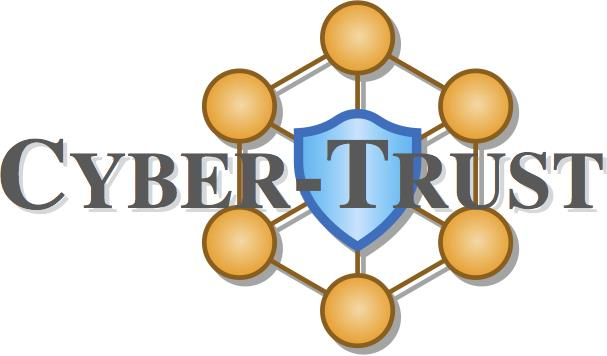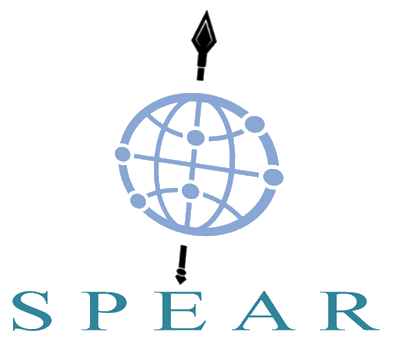Program
Friday, July 2nd, 2021The time shown in this schedule is the time in Tokyo, Japan (GMT+9)
1:00 p.m. – 1:30 p.m.
Registration / SETUP
1:30 p.m. – 1:40 p.m.
Welcome Session
Session Chair: Fulvio Valenza, Politecnico di Torino, Italy
1:40 p.m. – 2:55 p.m.
Technical Session 1 – Machine Learning techniques for Attack Detection
Session Chair: Jorg Keller, FernUniversitat in Hagen, Germany
DDoS Attack Detection and Mitigation in SDN using Machine Learning
Fatima Khashab, Carole Bassil, Lebanese University, Lebanon
Joanna Moubarak, Saint Joseph University of Beirut, Lebanon
Antoine Feghali, Potech Labs, Lebanon
Evaluating ML-based DDoS Detection with Grid Search Hyperparameter Optimization
Odnan Ref Sanchez, Raffaele Bolla, University of Genoa, Italy
Matteo Repetto, CNR - IMATI, Italy
Alessandro Carrega, CNIT - S3ITI, Italy
Intrusion Detection using Network Traffic Profiling and Machine Learning for IoT
Joseph Rose, Matthew Swann, Stavros Shiaeles, Gueltoum Bendiab, University of Portsmouth, UK
Nicholas Kolokotronis, University of Peloponnese, Greece
2:55 p.m. – 3:05 p.m.
Break
3:05 p.m. – 4:20 p.m.
Technical Session 2 – Network Traffic Analysis
Session Chair: Thanassis Giannetsos, Technical University of Denmark, Denmark
Transforming Network Traces to Virtual Networks
Daniel Spiekermann, Polizeiakademie Niedersachsen, Germany
Jorg Keller, FernUniversitat in Hagen, Germany
Leveraging the 5G architecture to mitigate amplification attacks
Matteo Repetto, CNR - IMATI, Italy
Alessandro Carrega, CNIT - S3ITI, Italy
Guerino Lamanna, Infocom Srl, Italy
Jaloliddin Yusupov, Turin Polytechnic University in Tashkent, Uzbekistan
Orazio Toscano, Gianmarco Bruno, Michele Nuovo, Marco Cappelli, Ericsson Telecomunicazioni, Italy
Code Augmentation for Detecting Covert Channels Targeting the IPv6 Flow Label
Luca Caviglione, Matteo Repetto, Marco Zuppelli, CNR - IMATI, Italy
Wojciech Mazurczyk, Andreas Schaffhauser, FernUniversitat in Hagen, Germany
4:20 p.m. – 4:30 p.m.
Break
4:30 p.m. – 5:45 p.m.
Technical Session 3 – Security Models and Trust Schemes
Session Chair: Nicholas Kolokotronis, University of Peloponnese, Greece
A novel approach for security function graph configuration and deployment
Daniele Bringhenti, Guido Marchetto, Riccardo Sisto, Fulvio Valenza, Politecnico di Torino, Italy
A Dynamic Recommendation-based Trust Scheme for the Smart Grid
Dimitrios Pliatsios, Panagiotis Sarigiannidis, George F. Fragulis, University of Western Macedonia, Greece
Apostolos Tsiakalos, Dimitrios Margounakis, Sidroco Holdings Ltd, Cyprus
Impacts of Service Decomposition Models on Security Attributes: A Case Study with 5G Network Repository Function
Shanay Behrad, Cao-Thanh Phan, B-com Institute of Research and Technology, France
David Espes, Université de Bretagne Occidentale, France
Philippe Bertin, Orange Labs B-com, France
5:45 p.m. – 5:55 p.m.
Break
Keynote speech Session Chair: Riccardo Sisto, Politecnico di Torino, Italy
Adversaries in the Network
Sandra Scott-Hayward, Queen's University Belfast, Belfast, United Kingdom

Short Bio – Sandra Scott-Hayward is a Lecturer (Assistant Professor) with the School of Electronics, Electrical Engineering and Computer Science, and a Member of the Centre for Secure Information Technologies at Queen's University Belfast (QUB). She began her career in industry and became a Chartered Engineer in 2006 having worked as a Systems Engineer and Engineering Group Leader with Airbus. Since joining academia, she has published a series of IEEE/ACM papers on security designs and solutions for softwarized networks based on her research on the development of network security architectures and security functions for emerging networks. She received Outstanding Technical Contributor and Outstanding Leadership awards from the Open Networking Foundation in 2015 and 2016, respectively, having been elected and serving as the Vice-Chair of the ONF Security Working Group from 2015 to 2017. Amongst many other service memberships, she was the TPC Co-Chair for IEEE NFV-SDN 2020 and is an Associate Editor of IEEE Transactions on Network and Service Management. She is Director of the QUB Academic Centre of Excellence in Cyber Security Education (ACE-CSE), one of the first universities to be awarded this recognition by the U.K. National Cyber Security Centre.
7:05 a.m. – 8:35 p.m.
Dinner/Lunch Break
8:35 p.m. – 10:20 p.m.
Cyber Security EU funded projects

ASTRID – AddreSsing ThReats for virtualIseD services
Matteo Repetto, CNR-IMATI, Italy
Web site: https://www.astrid-project.eu/

CYBER-TRUST – Advanced Cyber-Threat Intelligence, Detection, and Mitigation Platform for a Trusted Internet of Things
Nicholas Kolokotronis, University of Peloponnese, Greece
Abstract – The CYBER-TRUST project aims to develop an innovative cyber-threat intelligence gathering, detection, and mitigation platform to tackle the grand challenges towards securing the ecosystem of IoT devices. The proposed interdisciplinary approach will capture different phases of such emerging attacks, before and after known (even years old) or unknown (zero-day) vulnerabilities have been widely exploited by cyber-criminals to launch the attack. This intelligence information will be used to maintain accurate vulnerability profiles of IoT devices, in accordance with data protection, privacy, or other regulations, and optimally alter their attack surface to minimise the damage from cyber-attacks.
Web site: https://cyber-trust.eu/

SPEAR – Secure and PrivatE smArt gRid
Panagiotis Sarigiannidis, University of Western Macedonia, Greece
Abstract – Information and Communication Technologies (ICT) evolve the conventional electrical grid into the Smart Grid (SG) that provides several advantages and features. Nevertheless, the integration of ICT increases the attack surface of this domain, generating new potential cyberthreats. This paper introduces the Secure and PrivatE smArt gRid (SPEAR) architecture, which constitutes an integrated solution aiming at protecting SG, by enhancing situational awareness, detecting timely cyberattacks, collecting appropriate forensic evidence and providing an anonymous cybersecurity information-sharing mechanism. Moreover, the paper presents how the ARCADE methodology was adopted and used for designing and developing the SPEAR architecture. The components of the SPEAR architecture are introduced and discussed in terms of technical and integration details. Moreover, the technology behind each component is presented in a comparative way compared to the state of art, the current constrains, and the component functionalities.
Web site: https://www.spear2020.eu/

SIMARGL – Secure Intelligent Methods for Advanced Recognition of Malware and Stegomalware
Joerg Keller, FernUniversitat in Hagen, Germany
Abstract – SIMARGL is a project co-funded by the European Commission under Horizon 2020 programme, to combat the pressing problem of malware. It aims to tackle the new challenges in the cybersecurity field, including information hiding methods, network anomalies, stegomalware, ransomware and mobile malware.
Web site: https://simargl.eu/

GUARD – Guarantee Reliability and trust for Digital service chains
Antonino Albanese, Italtel, Italy
Web site: https://guard-project.eu/

PALANTIR - Practical Autonomous Cyberhealth for resilient SMEs & Microenterprises
Antonio Lioy, Politecnico di Torino, Italy
Web site: https://www.palantir-project.eu/

DataVaults
Sotiris Koussouris, SUITE5, Cyprus
Web site: https://www.datavaults.eu/

RAINBOW
Athanasios Giannetsos, Danmarks Tekniske Universitet, Denmark
Web site: https://rainbow-h2020.eu/
10:20 p.m. – 10:30 p.m.
Closing
Session Chair: Fulvio Valenza, Politecnico di Torino, Italy




